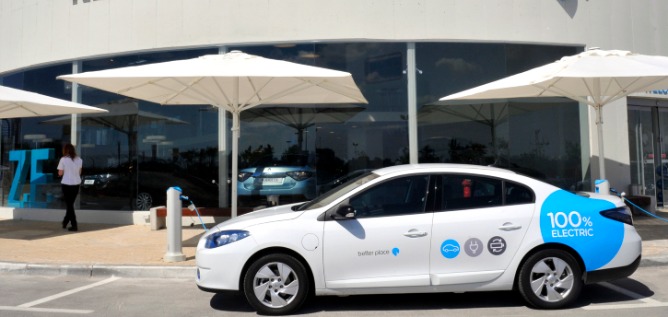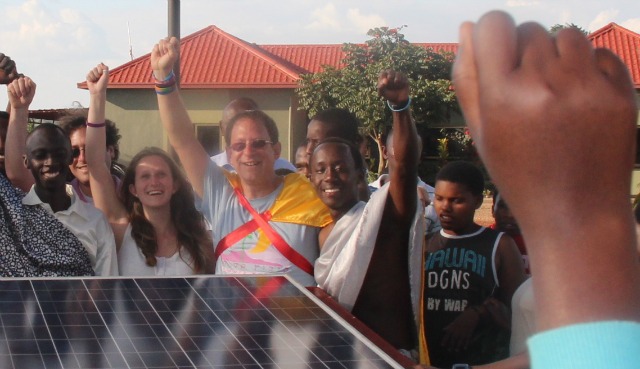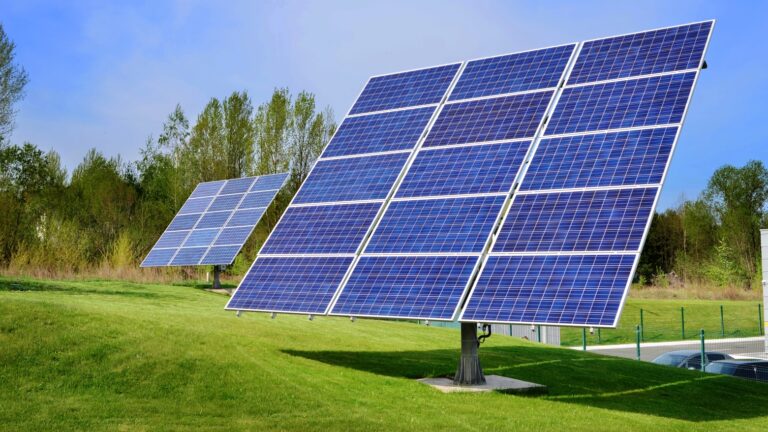“Kaptain Sunshine” Yosef Abramowitz — former journalist turned activist, turned solar-energy pioneer kibbutznik, turned “car salesman” as he puts it jokingly — is now steering bankrupt Better Place electric car charging network out of debt.
Last week, Abramowitz and his partners –– about 900 Israeli electric vehicle owners and drivers, and investors led by Canadian Henry Shiner –– were given court permission to purchase international IP rights and Israeli assets of the groundbreaking company formerly known as Better Place for about $12 million.
Spread the Word
• Email this article to friends or colleagues
• Share this article on Facebook or Twitter
• Write about and link to this article on your blog
• Local relevancy? Send this article to your local press
Since the news broke, Abramowitz’s phone has been ringing off the hook, he tells ISRAEL21c. So far the company – tentatively called Sunrise — has secured 25 percent of its goal of $36 million in investments. He doesn’t sound worried.
Drivers banded together to save their much-loved electric cars that are useless for long-range driving without a network of battery-switching stations. Abramowitz wrote an impassioned op-ed in the Jerusalem Post about the demise of Better Place two months ago, and was quickly swept into the effort to keep the electric car dream alive.
Better Place was valued at $2 billion in 2012, but when it declared bankruptcy in May, the company had burned through more than $800 million in financing. Shareholders were no longer interested in pouring more money into the company.
Back in 2007, company founder Shai Agassi envisioned thousands of electric cars on the roads by now. In reality, few people bought the Renault cars.
Those who did were all seemingly happy with their vehicles, so after the bankruptcy they founded the Union for Advancing Electric Transportation in Israel to brainstorm ways to avoid having to return their battery packs to Renault – the battery was not included in the car sale — or risk being unable to connect with specially installed charger stations at home or work.
After the 350 unsold Renault electric cars are sold or leased, the new entity will focus on supplying infrastructure and power –– and in the near future, renewable energy –– to any electric car driver. Sunrise, led by Abramowitz until a permanent CEO is found, will break even when 4,000 electric cars are connected to the existing network charging system.
Divine intervention
ISRAEL21c caught up with the American émigré when he was on his way to Boston, where his family is staying for the summer.
When the father of five looks back at the last few years of his life, he sees something that can only be described as divine intervention.
“That’s the only explanation. Yeah. Oh my God –– just the sequence of events over the last seven years of my life: From my work in education and the activism stuff, and now to be doing energy. That, you can’t script.”
On top of trying to put the framework of the electric car company together, he is also working more than full time at his day job as president of Energiya Global, an Israeli company that is building solar energy projects in Africa.
Abramowitz might be best known to the world for his work with Arava Power, a solar power company that has built projects in the Israeli desert. He spent years fighting for solar regulation and implementation as he tried to build the country’s first medium-sized solar field installation.
It is now generating 4.95 megawatts at Kibbutz Ketura near Eilat, and set a precedent in a country that produces only about one percent of its total energy from renewable sources.
He will lobby the Israeli government to keep a low eight percent purchase tax on electric cars, versus the 83% import tax for non-electric models. With these incentives, even the sexier electric cars like the Tesla EV could be within the price range of middle-class Israelis.
“We want to encourage people to buy Nissan Leafs, Chevy Volts, Tesla and all kinds of electric cars,” says Abramowitz.
Because Tesla can also take a “quick charge” currently not available at Better Place stations, Sunrise eventually will seek an alternative solution for that brand.
As for the battery switch stations, a lifeline for the existing car owners who want to drive long distances, Abramowitz envisions keeping 15 of them open for now. There are currently 37 in operation in Israel and they are bleeding capital.
Meanwhile, the wheels of divine intervention keep turning, and Abramowitz seems incredibly upbeat. One small detail that he’ll have to get used to: Partner stakeholders in Sunrise have insisted that he must drive an electric family car when he’s in Israel.
Used to scooting around on an electric bike, that’s one compromise Kaptain Sunshine says he’ll have to live with.

















